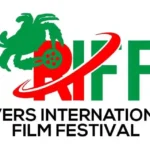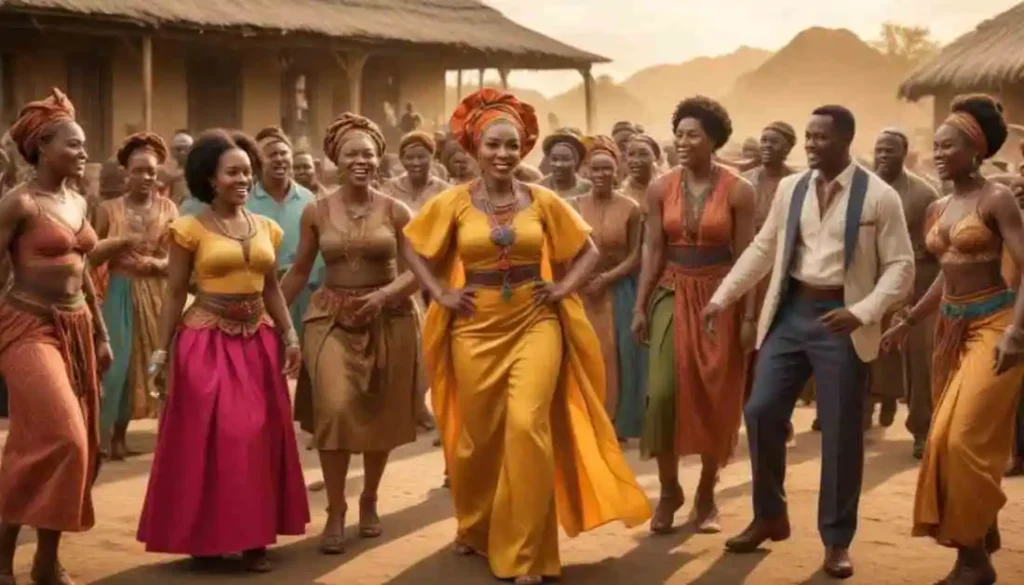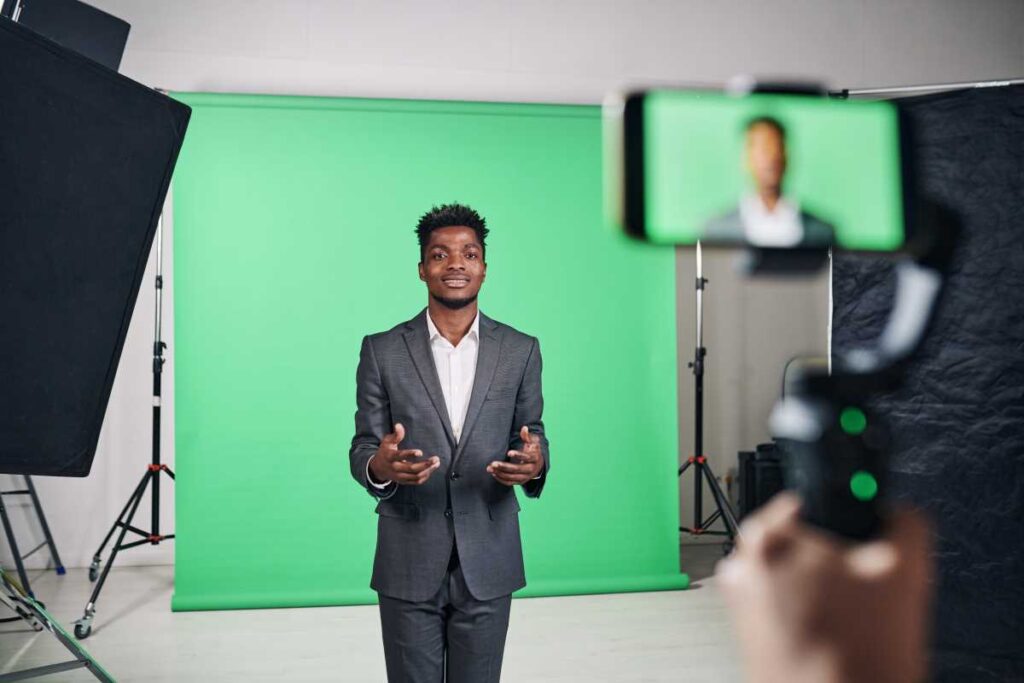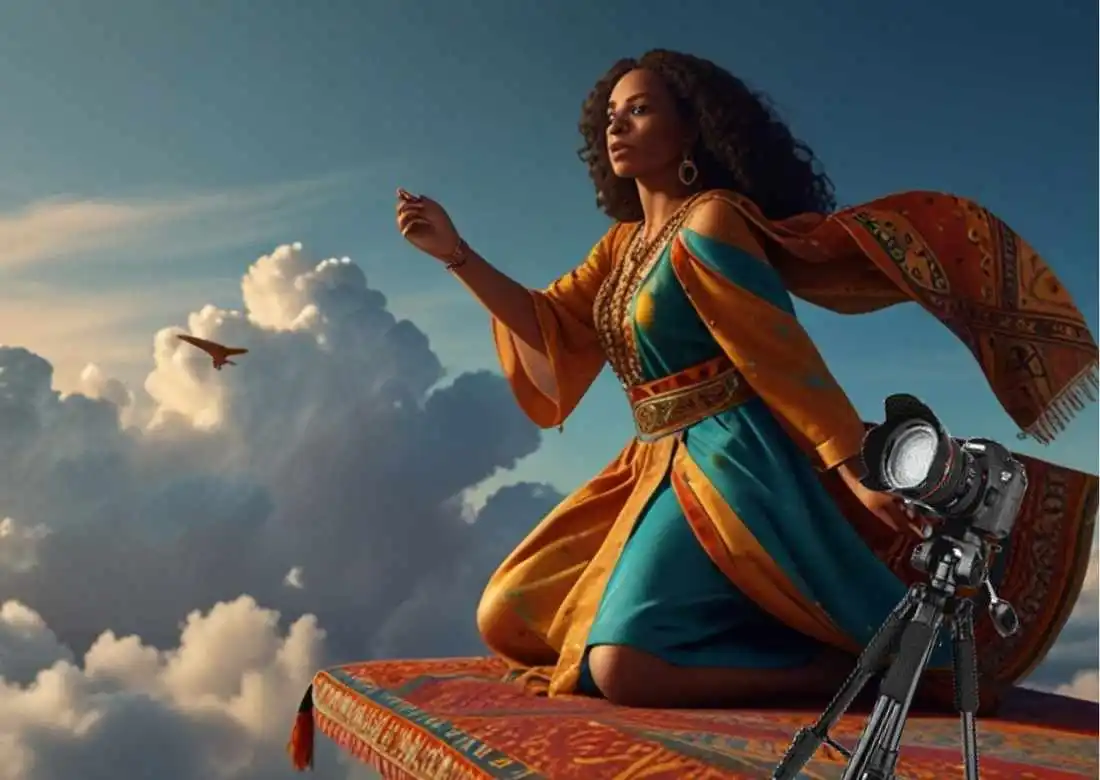
Artificial Intellingence (AI) is disrupting everywthing we know, inlcuding filmmaking.
With AI-generated scripts, characters, voice, graphics, VFX, and editing, filmmaking has transitioned into a new era. And the creative process is no longer the same.
So, do we still need writers, actors, cameras, animators, musicians, voice-over artists, editors, graphic designers, props, or even locations when AI can generate it all cheaper and faster?
Is AI the modern day fairy-tale magic carpet flying you to wonderful heights of success in filmmaking? Or an existential threat to all filmmakers?
In this piece we want to look at the impact of AI in critical aspects of filmmaking. From Pre-production all the way to distribution.
However before we do that it is important we take a look at the formal definition of the term, to broaden our understanding.
What is AI?
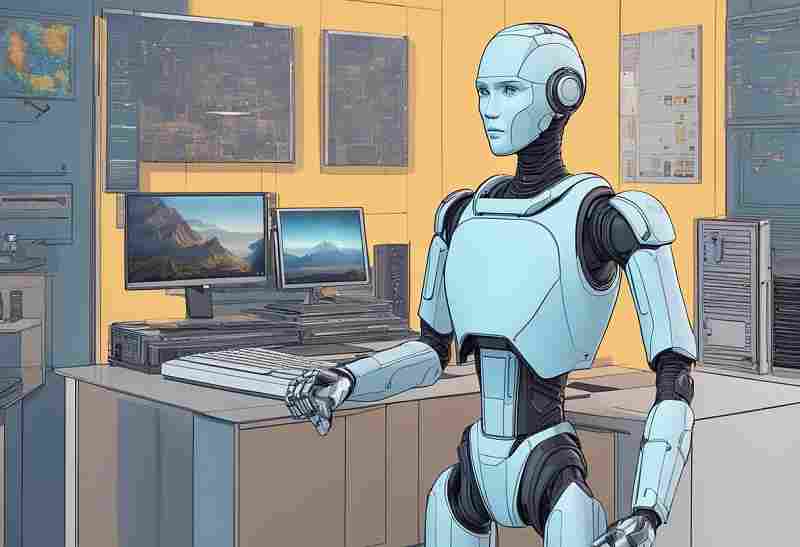
According to Coursera.org “Artificial intelligence (AI) is the theory and development of computer systems capable of performing tasks that historically required human intelligence, such as recognizing speech, making decisions, and identifying patterns.
AI is an umbrella term that encompasses a wide variety of technologies, including machine learning, deep learning, and natural language processing (NLP).”
The Evolution of AI in Filmmaking
The use of AI in the film industry picked up steam in the early 1970s when Computer Generated Imagery (CGI) began to appear in productions. CGI allowed filmmakers to create realistic-looking special effects that were previously impossible to achieve.
Today AI is utilized at every stage of the filmmaking process, from pre-production to distribution and marketing.
You can research, script, manage the production, (hire cast and crew, scout location etc.) with AI.
Your inability to find actors or the decision not to hire may no longer be an obstacle. You can generate videos and create characters to bring your story to life. This specific technology is not perfect yet, but even at its rudimentary level it is amazing.
Through AI you can manifest the most incredible visual effects. Your film artwork can be a stunning piece of creative design, if you leverage the power of AI. Just as there are AI tools available help you in distribution and marketing.
Through AI, your post-production can be a smooth blend of creativity and storytelling.
You can narrate the voice over with AI. Just as it can be your orchestra, creating the music you require.
AI is changing the way filmmakers approach their craft, and the possibilities for the future of film are endless.
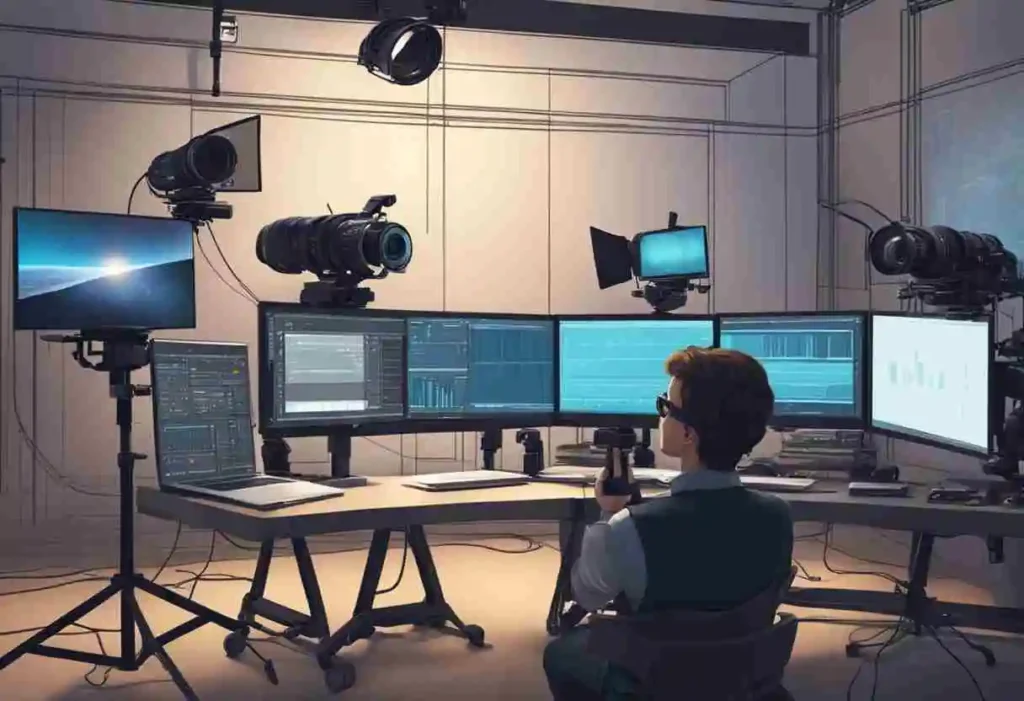
Key Takeaways
- AI technology is transforming the film industry.
- AI is being used to analyze scripts, predict box office success, and even generate new stories.
- AI is used to generate audio and video that can replace actors.
- The impact of AI on the film industry is significant, and it is changing the way films are made and consumed.
- AI may be the new fairy tale magic carpet that can transport creatives with minimal resources to sky-high filmmaking success.

AI and Pre-Production
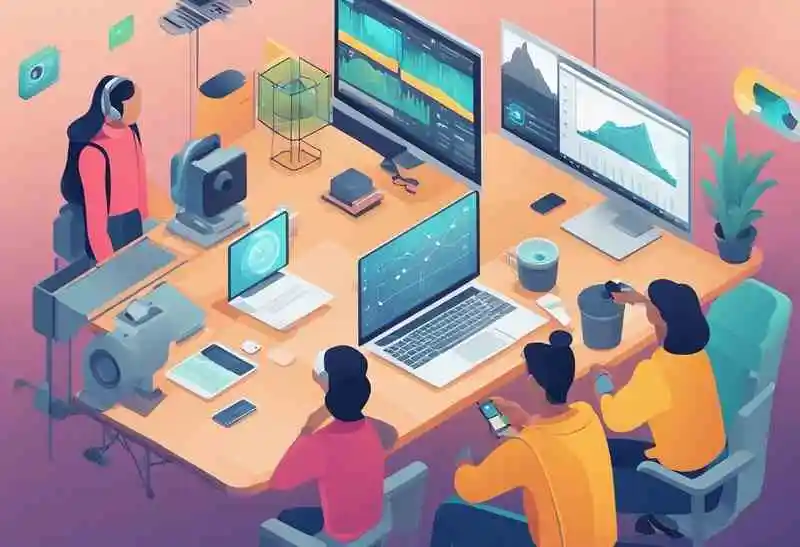
One of the most exciting areas where AI is making an impact is in screenwriting and pre-production.
With AI-powered tools, filmmakers can streamline the pre-production process, save time, and reduce costs. While ensuring that the final product meets their creative vision.
READ ALSO: How To Write A Winning Screenplay
AI And Scriptwriting

AI-powered scriptwriting tools analyze vast amounts of data to help screenwriters create compelling stories. By analyzing successful movies and TV shows, these tools can identify patterns that resonate with audiences. Thereby helping screenwriters develop characters, plotlines, and dialogue that are more likely to succeed.
One of the most popular AI tools is Open AI ChatGPT, a chatbot “that uses natural language processing to create humanlike conversational dialogue. The language model can respond to questions and compose various written content, including articles, social media posts, essays, code and emails.
Many filmmakers and content creators use ChatGPT to research, develop treatments and write their scripts.
Another example of AI tools used in pre-production is ScriptBook, The application uses natural language processing to analyze scripts and offer insights on plot structure, pacing, and character development.
According to CNN “ScriptBook uses algorithms to spot hit movies.” The tool can also predict the potential box office revenue of a script, helping filmmakers make more informed decisions about which projects to pursue.
Storyboarding And Visualization
AI-powered tools can also help filmmakers visualize their ideas and create storyboards more efficiently. Storyboarding is a crucial part of the pre-production process, as it allows filmmakers to plan out shots, angles, and camera movements before filming begins.
One example of an AI-powered tool for storyboarding is Shot Designer, which allows filmmakers to create detailed storyboards and shot lists. The tool also offers features like camera angle suggestions and lighting diagrams, helping filmmakers create a more polished and professional final product.
Suffice to say there is a growing box of options when it comes to creating images with AI. Some of the favorites include Leonardo.ai, Dall-E, Midjourney and many others.
Casting And Location Scouting
AI-powered tools can also help filmmakers find the right cast and locations for their projects. By analyzing data on actors’ past performances and demographics, these tools can help filmmakers make more informed casting decisions.
Similarly, by analyzing data on locations’ availability, weather patterns, and other factors, these tools can help filmmakers find the perfect location for their project.
One example of such a tool is Castifi, which uses AI to match actors with roles based on their skills and experience. The tool also offers features like automated scheduling and real-time communication.
This makes the casting process more efficient and streamlined. Another example is StudioBinder, which uses AI to analyze data on locations and suggest the best options for a particular scene or shot.
Wakacast is also a player in this aspect of filmmaking. Through the platform registered actors can find roles, while producers and content creators can source cast and crew to work with.
Overall, AI-driven screenwriting and pre-production tools are transforming the filmmaking industry. They are making it easier and more efficient to create compelling stories and bring them to life on the big screen.
READ ALSO: The Best Screenwriting software to craft compelling story
AI On Set
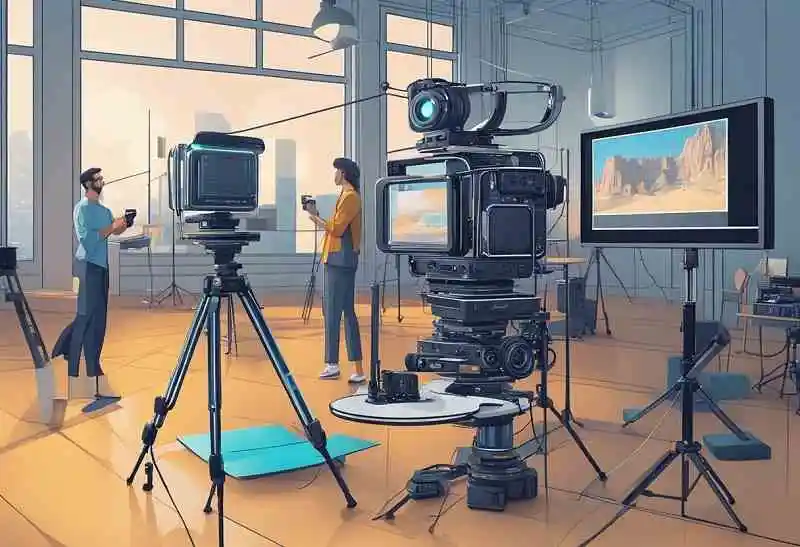
AI is revolutionizing filmmaking by introducing new ways to streamline the production process and enhance the quality of films. It is can be used on set in various ways including real-time video analysis, automated camera operations, lighting and sound optimization.
Real-Time Video Analysis
AI algorithms can analyze video footage in real-time, providing filmmakers with valuable insights. For example, AI can analyze the facial expressions of actors and provide feedback on their performance.
Automated Camera Operations
Automated camera operations are another area where AI is transforming the filmmaking industry. AI-powered cameras can track the movements of actors and automatically adjust the camera settings to ensure that the shots are always in focus.
This can save filmmakers a lot of time and effort, as they no longer have to manually adjust the camera settings for each shot.
Lighting and Sound Optimization
AI can also be used to optimize lighting and sound on the set. Its algorithms can analyze lighting conditions and adjust the lights accordingly to ensure that the shots are properly lit.
In the same vein, it can analyze the sound conditions and adjust the microphones to ensure that the sound is clear and free of background noise.
Overall, AI is transforming the filmmaking. It is doing so by streamlining the production process and providign tools to enahce quality across board.
Will AI be your magic carpet for sky-high success in filmmaking? What AI application are you using in your projects at the moment? Is it a writing tool, text to image generator, video creator, animation, music creation app etc.?
Let us know, so we all can learn and grow as creatives.
In the second part of this article: AI: A Magic Carpet for Sky-High success in filmmaking, we will look at the impact of AI in Post Production. Click here to read.
